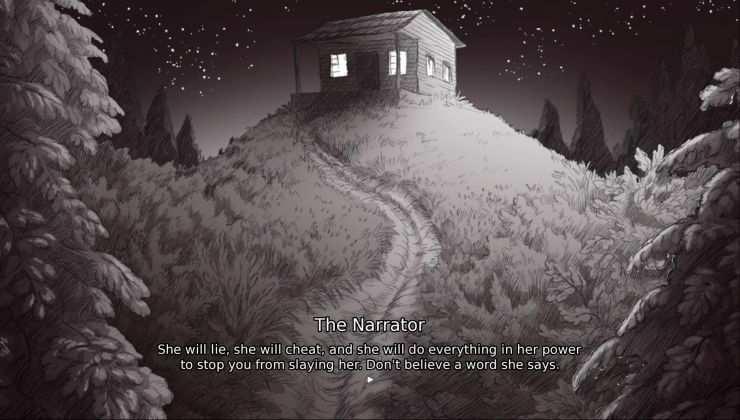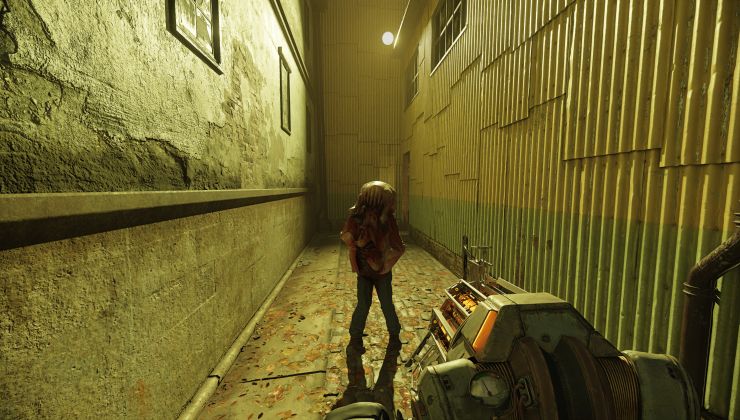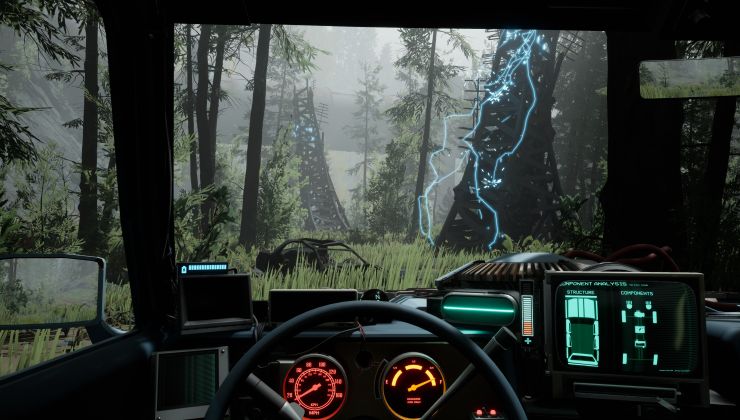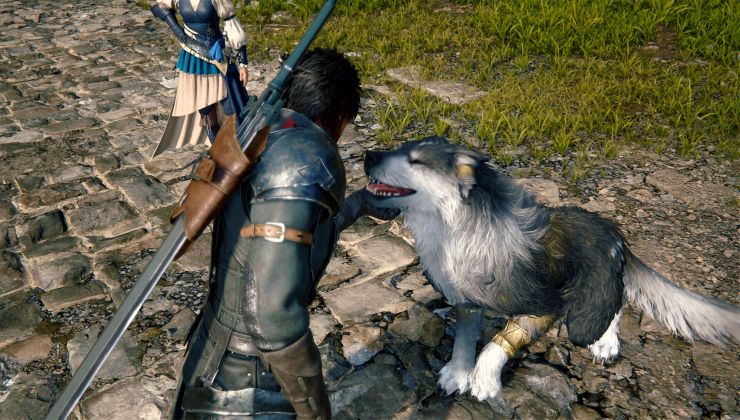Remember recently we had a release of the reverse-engineered GTA III and Vice City code that worked well on Linux? Which was then promptly taken down by a DMCA notice? Well, it's back.
Not the original mind you, one of the forks on GitHub has returned as the forker issued a DMCA Counter Notice and intends to actually fight it. According to TorrentFreak, New Zealand-based developer named Theo is taking a stand against this DMCA behaviour and has managed to get GitHub to restore their fork.
"It would appear that the code in the re3 repo is reverse engineered, not a straight decompilation. I believe Take-Two’s claim to be wholly incorrect if this is the case, since the code may be functionally identical, but not exactly identical, they hold no claim to the code. I do not agree with how Take-Two handles events like this," Theo adds, referencing an earlier debacle when Take-Two targeted the OpenIV modding tool. "Taking down code that does not belong to them is abhorrent."

This isn't GitHub doing either side any favours though, this is of course as a result of Theo directly taking a stand as per the DMCA rules which state it needs to be put back in 10-14 days once a counter notice has been received so GitHub are just following the rules here.
Honestly it amazes me companies, bigger ones especially, don't see how these projects can benefit them and instead send the lawyers. You still need to legally own each game, so it can even help boost sales and gain a renewed interest in the classics without Take-Two needing to lift a finger. So far, no reply from Take-Two on it so it might even remain online this time around.
Find it on GitHub.
Recently I found out that the Ultima series licence is owned by EA and this is the reason why anything new within series can't be published.
Another case I saw recently was stopping development on really great fan project of 4X game in the universe of Warhammer 40k, because developer didn't bought the license from Games Workshop.
At least we can see which company is more about money than doing great games.
Last edited by Zlopez on 12 May 2021 at 10:01 am UTC
I wonder myself why the companies owning licenses to some games just doesn't let fans to create their own games.
This is a quite different situation.
Let's say you buy a Ford. Then you put on better tires, and paint it in a color that you cannot get from the factory. Then you tell others how to do the same, so they can buy their own Ford and mod it. This is basically what this GTA re-implementation is.
What you suggest is more akin to building your own car from scratch and calling it a Ford. No company really wants their name associated with something they didn't make.
Although a lot of companies would rather have their "intellectual property" rot than anybody doing anything with it. Even if it's generations out-of-date (like GTA 3 engine) and would benefit absolutely nobody except the most loyal fans. No no, just buy the remastered edition instead, if they ever bother releasing one.
Last edited by Linas on 12 May 2021 at 10:34 am UTC
The article title makes it sound as if this was a proactive stance by github, whereas they are just mechanically following the DMCA protocols, as the original TF article clarifies.Really not sure why you got that impression. It was very clearly noted that Theo got GitHub to restore it, not that GitHub did it to help anyone out. I've added another part to explain it even further.
The article title makes it sound as if this was a proactive stance by github, whereas they are just mechanically following the DMCA protocols, as the original TF article clarifies.Really not sure why you got that impression. It was very clearly noted that Theo got GitHub to restore it, not that GitHub did it to help anyone out. I've added another part to explain it even further.
I got the same impression from the title alone: "GitHub restores a fork of the cross-platform reverse-engineered GTA III and Vice City code". It really looks like GitHub did this on its own.
This is a quite different situation.
Let's say you buy a Ford. Then you put on better tires, and paint it in a color that you cannot get from the factory. Then you tell others how to do the same, so they can buy their own Ford and mod it. This is basically what this GTA re-implementation is.
What you suggest is more akin to building your own car from scratch and calling it a Ford. No company really wants their name associated with something they didn't make.
Although a lot of companies would rather have their "intellectual property" rot than anybody doing anything with it. Even if it's generations out-of-date (like GTA 3 engine) and would benefit absolutely nobody except the most loyal fans. No no, just buy the remastered edition instead, if they ever bother releasing one.
Still if they don't make any money from it, why they just can't build something by themselves using the brand. We would never see any fan work if this was really the case and out there is a lot of it. Just try to look for the amount of Warhammer 40k fan created content or other brands you like.
I can understand it, if they want to get some profit from it, but in the case of Ultima even the original creator can't create any new game under this license (Lord British can't create any new Ultima game, because he don't own the licence anymore, he lost the rights when working for EA few years). And for the fan project in WH40k, they didn't plan to have any profit from it, so it was just something made by the fans for the fans. Furthermore, the computer games are not what the Games Workshop does, their main article are tabletop and books.
Last edited by Zlopez on 12 May 2021 at 10:47 am UTC
I got the same impression from the title alone: "GitHub restores a fork of the cross-platform reverse-engineered GTA III and Vice City code". It really looks like GitHub did this on its own.The title is factual though, GitHub are the ones to restore it since they're hosting it - regardless of why it was done. Titles can only say so much, the key is what the text explains ;)
The article title makes it sound as if this was a proactive stance by github, whereas they are just mechanically following the DMCA protocols, as the original TF article clarifies.Really not sure why you got that impression. It was very clearly noted that Theo got GitHub to restore it, not that GitHub did it to help anyone out. I've added another part to explain it even further.
I think it's just the title. "Github restores ..." does make it sound (on first glance) that they did it. Perhaps "Fork of .... restored on Github" would make it more obvious for the ones that don't actually read the article?
Anyway, good to see someone willing to fight this DMCA nonsense.
I can understand it, if they want to get some profit from it, but in the case of Ultima even the original creator can't create any new game under this license (Lord British can't create any new Ultima game, because he don't own the licence anymore, he lost the rights when working for EA few years). And for the fan project in WH40k, they didn't plan to have any profit from it, so it was just something made by the fans for the fans. Furthermore, the computer games are not what the Games Workshop does, their main article are tabletop and books.Profit is not the issue here. First of all, if they do not defend their trademarks, they can legally lose them. Secondly, a lot of companies are really anal about what their name can be associated with, because they are (sometimes rightfully) afraid that it will tarnish their name.
When I was still a student, I was a member of a student organization that would do semi-educational events. For that we would need to find partner/sponsor-companies, and they would get publicity in return. And most of them would be very specific about how, where, and when their name may be used. It's all part of corporate branding and image, because how your company is perceived by outsiders is very important for businesses.
Now of course it is up to the company how they want to handle fan projects. Some would even endorse and welcome them, while others would viciously fight anything remotely touching their IP. There is a huge spectrum of how this could be handled, and it's not always clear what the best strategy is.
Imagine that somebody makes a "fan project" of the game you made. Then you need to consider if this will give you positive publicity and generate more sales, or maybe confuse your potential buyers, and reduce sales? What if the creators of the fan project do something illegal or just stupid that you have no control over? Would people be able to see that it was not your doing?
At any rate, managing fan projects properly is not exactly a zero effort endeavor, especially if you want to do it properly.
Honestly it amazes me companies, bigger ones especially, don't see how these projects can benefit them and instead send the lawyers
yeah, i really don't get how dense you have to be to decide "i'd rather take a shitstorm and damage my reputation with the fanbase instead of free advertisement to keep the IP relevant and maybe even some sales from very old games"...
Honestly it amazes me companies, bigger ones especially, don't see how these projects can benefit them and instead send the lawyers. You still need to legally own each game, so it can even help boost sales and gain a renewed interest in the classics without Take-Two needing to lift a finger.If they had any sense, they'd encourage these projects and package the new engine with future sales of the games.
The build process isn't obvious and the errors you'll get if you try to just do cmake and make are confusing:
Spoiler, click me
==== Building librw (debug_linux-x86-librw_gl3_glfw-oal) ====
Creating obj/linux-x86-librw_gl3_glfw-oal/Debug/librw
anim.cpp
In file included from /usr/include/c++/10/stdlib.h:36,
from ../vendor/librw/src/anim.cpp:2:
/usr/include/c++/10/cstdlib:41:10: fatal error: bits/c++config.h: No such file or directory
41 | #include <bits/c++config.h>
| ^~~~~~~~~~~~~~~~~~
compilation terminated.
make[1]: *** [librw.make:354: obj/linux-x86-librw_gl3_glfw-oal/Debug/librw/anim.o] Error 1
make: *** [Makefile:72: librw] Error 2
I built it following the guide and it actually worked just fine!
Last edited by rkfg on 12 May 2021 at 11:44 am UTC
I had only one issue in which I had to temporarily decrease the FPS at the mission "Naval Engagement" to continue.
Like Liam, I don't get why companies would want to miss out on "retroactive" purchases of their old games, and instead spend money on lawyers. Retronerds (who want to play old games using new technology) seem like a great target audience to me.
Last edited by Oet_ on 12 May 2021 at 12:58 pm UTC
Now of course it is up to the company how they want to handle fan projects. Some would even endorse and welcome them, while others would viciously fight anything remotely touching their IP. There is a huge spectrum of how this could be handled, and it's not always clear what the best strategy is.
But the discussion here would be if creating an engine from scratch that is compatible with the IP protected engine is legal or not. If re3 doesn't use a line of code extracted from the original binaries, I find difficult to believe that this project violates any IP at all. I mean, if this would be illegal then wine, freedos and many other OS "emulators" would be illegal as well.
I wonder myself why the companies owning licenses to some games just doesn't let fans to create their own games.
Recently I found out that the Ultima series licence is owned by EA and this is the reason why anything new within series can't be published.
Another case I saw recently was stopping development on really great fan project of 4X game in the universe of Warhammer 40k, because developer didn't bought the license from Games Workshop.
At least we can see which company is more about money than doing great games.
Yes but games workshop legitmately own everything warhammer and they have licenced drek before i guess they are now picky about what comes out also they do deserve payment if you plan to make your game based on their ip which they spent money developing.
Brave soul, I hope they will prevail.
He wont he may win and they may say okay keep your code up but remove all of our assets from the game which we do own
Great! I hope the AUR package will be updated to use the fork.
PKGBUILDs are easy to work with.
git clone https://aur.archlinux.org/re3-git.git
cd re3-git
vi PKGBUILDreplace the repo location in the source array with
git+https://github.com/td512/re3.git and makepkg -si.










 How to set, change and reset your SteamOS / Steam Deck desktop sudo password
How to set, change and reset your SteamOS / Steam Deck desktop sudo password How to set up Decky Loader on Steam Deck / SteamOS for easy plugins
How to set up Decky Loader on Steam Deck / SteamOS for easy plugins
See more from me